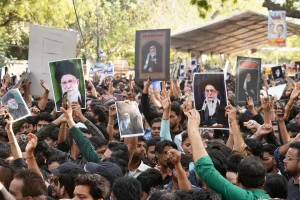Central Asian Hospitality Evolving Through Regional Cooperation and Technology
Across the hospitality landscapes of Central Asia, a remarkable transformation is underway. What was once a collection of disconnected markets is evolving into a more cohesive regional industry, with Kazakhstan and Uzbekistan leading the way. At the recent HORECA EXPO UZBEKISTAN 2025 in Tashkent, professionals from both countries gathered to discuss how their shared cultural values, combined with technological innovation, are reshaping hospitality across the region. The conversations revealed an industry that’s becoming increasingly sophisticated while maintaining the warm, personal touch that defines Central Asian hospitality.
The Association of Restaurants of Kazakhstan, founded in 2016, has grown into an influential organization representing around 16,000 restaurants throughout the country. According to Irina Lebedeva, the association’s Financial Director, their mission transcends mere industry representation—it’s about creating a community where expertise can flow freely between professionals. “We started with international culinary competitions in Almaty, but quickly realized restaurateurs needed their own platform,” Lebedeva explained during the expo. “Everyone has unique strengths—some excel in the kitchen, others in staff management. When we come together, everyone becomes stronger.” This collaborative spirit has extended across borders, with the association actively engaging Uzbek counterparts in joint training programs and events over the past several years. What makes this partnership particularly effective is the natural cultural understanding between the two countries, where similar languages and traditions create an intuitive grasp of what hospitality means in the regional context.
Kazakhstan’s restaurant sector appears to be at the forefront of technological adoption, with digital transformation reshaping how establishments operate. Many Kazakh restaurants have embraced artificial intelligence and automation for handling reservations, accounting processes, and customer feedback management. This technological evolution isn’t just about operational efficiency—it’s fundamentally changing how restaurateurs view their business. As Lebedeva aptly put it: “A restaurant today isn’t just about food. People come for emotions—the staff presentation, the plating, lighting, music. Serving good food alone doesn’t cut it anymore. Guests purchase experiences, and technology helps maintain that quality.” This perspective represents a significant shift in understanding what draws customers to restaurants in Central Asia. Beyond the practical benefits of freeing managers from paperwork to focus on atmosphere and customer experience, these digital systems allow remote monitoring of finances and performance—particularly valuable in a region where business owners often operate multiple establishments across different cities.
Uzbekistan’s approach complements Kazakhstan’s business-led innovation with robust government support for the hospitality sector. Shukhrat Isakulov, who heads the Tourism Development Department under Uzbekistan’s Ministry of Ecology, outlined an ambitious program running until 2027 that specifically targets international expansion for Uzbek restaurateurs. “If an Uzbek entrepreneur wants to open a restaurant abroad, the government will support them,” Isakulov explained, “from covering partial equipment costs to assisting with permits, logistics, and even transporting hard-to-find ingredients.” This initiative represents more than simple business development—it’s cultural diplomacy through gastronomy, designed to increase Uzbekistan’s visibility on the global hospitality stage while creating economic opportunities for local businesses. The program includes targeted subsidies for restaurants promoting Uzbek cuisine internationally and financial backing for media content that showcases the country’s culinary heritage.
Within Uzbekistan itself, the government’s Tourism Committee continues to invest heavily in both human capital and digital infrastructure. Professional training programs are being expanded alongside technology implementation across hotels, restaurants, and transportation services. This dual focus recognizes that truly exceptional hospitality requires both well-trained personnel and efficient systems working in harmony. The approach mirrors Kazakhstan’s development pattern but with greater centralized coordination, reflecting different governance traditions while working toward similar outcomes. Both countries’ representatives at the expo emphasized that despite their distinct approaches, they’re addressing common challenges: maintaining authentic cultural experiences while meeting the rising expectations of increasingly sophisticated travelers, both domestic and international.
The most striking theme throughout the expo was the shared vision of hospitality as a regional strength rather than a field for national competition. Representatives from both countries repeatedly emphasized how their geographical proximity and cultural similarities create natural opportunities for collaboration. “We don’t have membership fees or exclusive clubs,” noted Lebedeva, highlighting the open nature of professional networks in the region. “If someone wants to learn and develop, the doors are open. Collaboration makes the entire industry stronger.” This perspective acknowledges that Central Asian hospitality has distinctive qualities worth preserving—warmth, generosity, and personal connection—while recognizing that professionalizing service standards benefits everyone. The next evolution appears to be developing common professional benchmarks across the region while preserving each country’s unique cultural flavor.
As Central Asia’s hospitality sector continues to evolve, the partnership between Kazakhstan and Uzbekistan may serve as a model for regional cooperation. Their collaborative approach demonstrates how neighboring countries with shared cultural traditions can work together to elevate an entire industry. By exchanging technology, training methodologies, and management expertise, these countries are creating hospitality ecosystems that honor their heritage while embracing innovation. While challenges certainly remain—from infrastructure development to consistency across remote areas—the foundation for a distinctive Central Asian approach to hospitality is clearly emerging. For travelers, this means increasingly sophisticated services delivered with authentic cultural warmth; for industry professionals, it represents growing opportunities to learn, innovate and expand within a supportive regional network. As one participant summarized during the closing session: “Our strength isn’t in competing against each other, but in presenting Central Asian hospitality to the world as something special and unified.”









